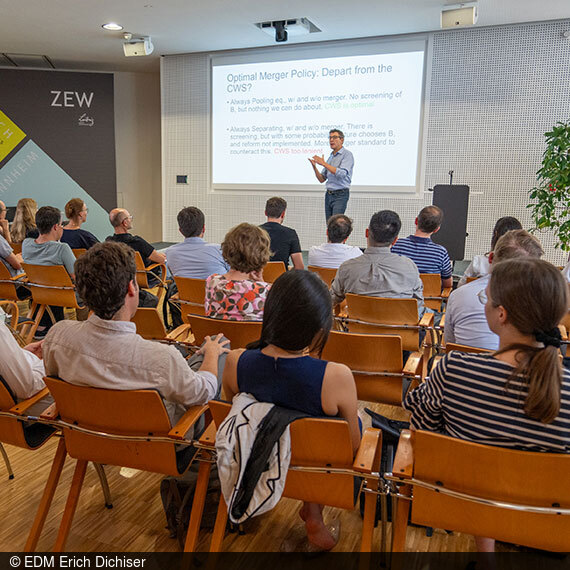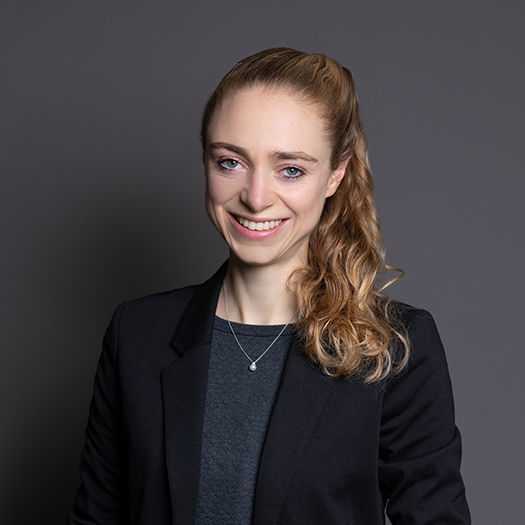Digital Economy Experts Convene at ZEW Conference
Conferences22nd Conference on the Economics of Information and Communication Technologies
At ZEW Mannheim on 27 and 28 June 2024, the 22nd Annual Conference on the Economics of Information and Communication Technologies took place, organised by ZEW’s “Digital Economy” Research Unit. The two-day event saw international scholars presenting and discussing their latest empirical and theoretical research findings in two parallel sessions. The conference, organised this year by Professor Irene Bertschek, Dr. Dominik Rehse and Luca Sandrini, PhD, has long been considered one of the most prominent scientific conferences on the digital economy. This is evidenced by the more than 100 scientific papers submitted to the conference, which was attended by around 85 participants.
A wide range of topics were discussed in a total of 14 sessions, including digital skills, artificial intelligence, online advertising, social media, and price setting in the digital market and on digital platforms as well as their regulation. In between sessions, scholars had ample opportunity to exchange ideas about their current research, find common ground with other participants and build their professional networks.
Market power and lobbying: Keynote speech by Tommaso Valletti
On the first day of the conference, Tommaso Valletti, professor of economics at the Imperial College of London, gave a keynote speech on the relationship between market power and exertion of political influence through lobbying. He explained how company mergers can influence the volume of expenditure on lobbying, as well as how regulators should assess the potential impact of such mergers. For further research projects, Valletti emphasised the necessity of studying the macroeconomic effects of company mergers and the trends in lobbying activity in selected industries. He highlighted the importance of the topic by pointing to the fact that 85 per cent of lobbying expenditure in the United States is carried out by corporations.
Online homophily and its effects: Keynote speech by Maria Petrova
On the morning of the second conference day, participants heard a keynote speech from Maria Petrova, professor of economics at Pompeu Fabra University, on online homophily, a phenomenon in which social media users mainly interact with like-minded people. Although the internet and its social networks have the capability to overcome distance and facilitate new connections, Petrova shed light on how they can also contribute to division and isolation. Based on her research project, she showed how a change in Facebook’s design in affected regions was accompanied by an increase in the average use of the platform and changes in social behaviour that spilled over into the offline world, such as a decrease in restaurant visits.
Networking and culture
The dinner on the first evening of the conference as well as the time following the sessions on the second day gave the scholars the opportunity to participate in further informal discussion. This year’s conference was topped off with a city tour of Mannheim. Everyone is already looking forward to next year’s conference, which will take place on 26 and 27 June 2025.







